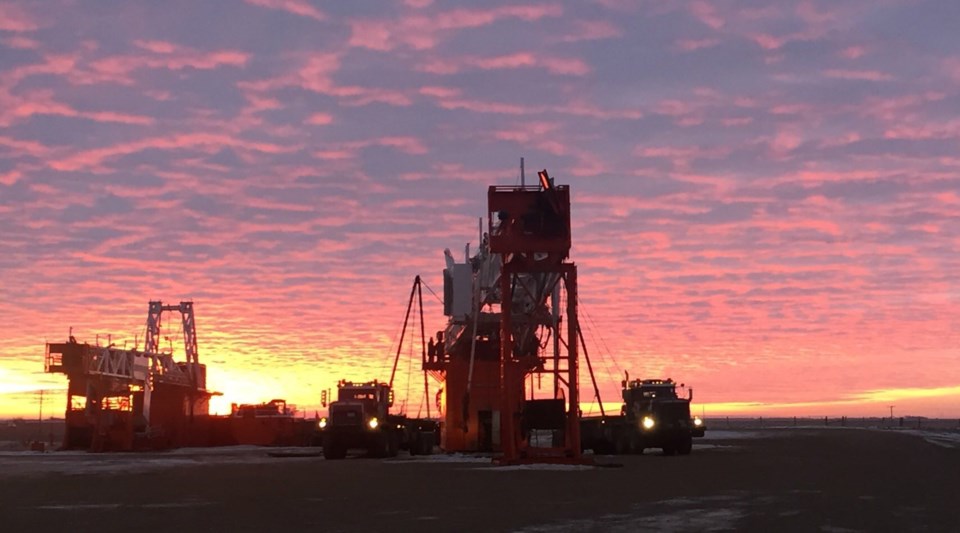Weyburn – It was with considerable relief that Nikki Dikkie, office manager with Panther Drilling, tweeted on Jan. 8, “Beautiful sunrise, topped off with a rig move in the foreground. Happy Monday to the SE Saskatchewan oilfield!”
The accompanying photo showed two gin pole trucks lined up with the derrick of Panther Drilling Rig 3. The last time that rig had gone to work was January 2015. “Three years,” Dickie said by phone.
While Rig 4 has been working relatively consistency through much of the downturn, it was often the only rig of the company’s four that was seeing any action. Rig 2 went to work in later 2017. Now Rig 3 is turning to the right in the Oungre area, and the company has hopes that they might get Rig 1 out as well.
Rigs 1 and 3 appeared on the front page of Pipeline News in June, in time for the Saskatchewan Oil and Gas show in Weyburn. The company stood them up for the first time in years, what this paper called a sign of hope for the industry. Now that hope is finally coming to fruition.
The office staff is no longer on reduced hours, like they had been for several years. In fact, they’re putting in extra hours.
“We crewed the rigs up. Some people came back that haven’t worked for Panther for three years,” Dickie said. “Our guys had other jobs in the meantime.”
She noted they are appreciative of the fact the workers are coming back. She likened it to “getting the band back together,” a line made famous by the movie The Blues Brothers.
This past summer Panther spent a good 10 days going through the idle rigs, getting them ready.
Dickie said it’s looking like 2018 will be a better year than 2017, which was better than 2016. Wages, for instance are at rates recommended by the Canadian Association of Oilwell Drilling Contractors (CAODC). When just one rig was working, the pay was lower.
Dickie explained that as things picked up, most drilling companies have met the CAODC wages. They did so in January 2017.
The winter drilling season after the New Year is just 74 days, from Jan. 2 to March 15, usually.
“You have to convince them to come to work for six to eight weeks, and to be laid off for six to eight weeks,” Dickie said.
The company is working without swing crews now, but hopes to have those in place after breakup. That means a rig today is working with a crew of 16, but that will rise to 21 once swing crews are in place. Â




